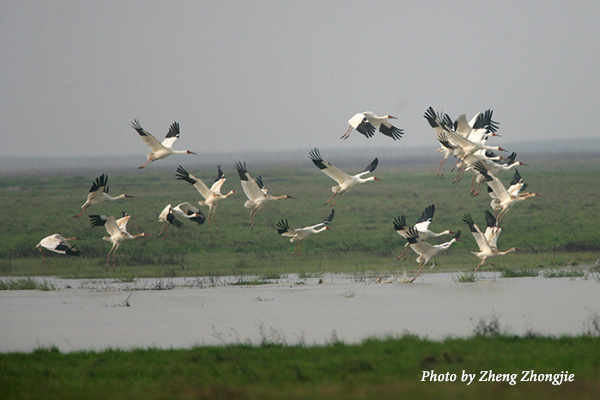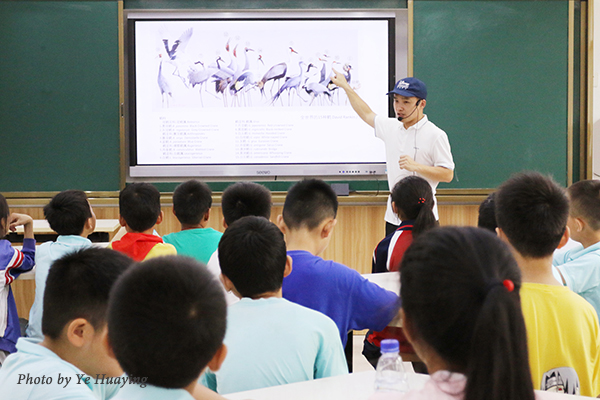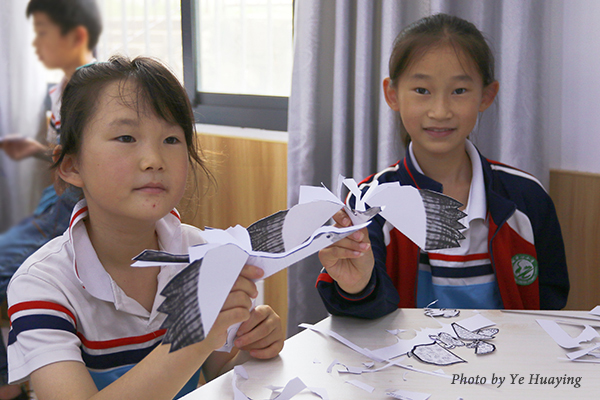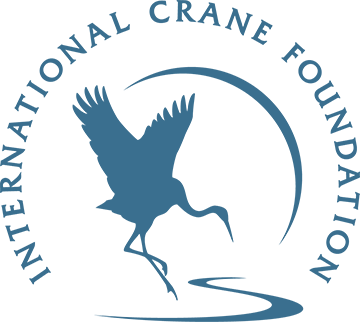As the largest freshwater lake in China, Poyang Lake in summer is full of blue waves as water levels rise from the Yangtze River’s floodwaters. In winter, the water lowers, and Poyang Lake is a paradise for migratory birds. The lake provides suitable habitat for hundreds of thousands of wintering birds, including Siberian, White-naped and Hooded Cranes, which feast on plant tubers in the shallow water.

Dozens of protected areas have been established in the Poyang Lake area to protect the unique wetland ecosystem and biodiversity. Two of these protected areas are included in the Ramsar Convention on Wetlands of International Importance, which are Jiangxi Poyang Lake National Nature Reserve and Jiangxi Nanji Wetland National Nature Reserve.
Since 2018, the International Crane Foundation, Wucheng Elementary School and Poyang Lake National Nature Reserve have developed the Poyang Lake Environmental Education Curriculum, which has 16 themes, including local history, culture, wetlands, flora and fauna, and crane protection. All courses are taught voluntarily by teachers from the school, and the International Crane Foundation and nature reserve provide the necessary training and support for the teachers. This curriculum combines indoor teaching and winter and summer camps to help students understand their hometown’s human history and natural ecology and to cultivate the children’s appreciation and value of this region.


With joint effort, we launched the Poyang Lake Siberian Crane School at Wucheng Elementary School in December 2021. Teachers conducted the Poyang Lake Environmental Education curriculum during the 2021-2022 academic year. Nearly 50 students in Grade 4 joined this course. During the year, students learned about their hometown history and natural ecology through classroom and outdoor activities.
We organized a summer camp in late June 2022, “Our Home – Poyang Lake.” The camp included an introduction to the world’s cranes, lessons on the cranes that winter at Poyang Lake, the threats to migratory bird habitat in the region, and hands-on activities, including a habitat game, paper cutting and wood painting. As part of the environmental education in Poyang Lake, the summer camp was very enjoyable for the children. We will continue to work with teachers to bring more abundant environmental education activities to their students. We hope the seeds of nature and wildlife conservation have been planted, and the students will protect their hometown as the heaven of migratory birds in the future.

Story submitted by China Program Coordinator Hou Bo. Click here to learn more about our East Asia Programs.
